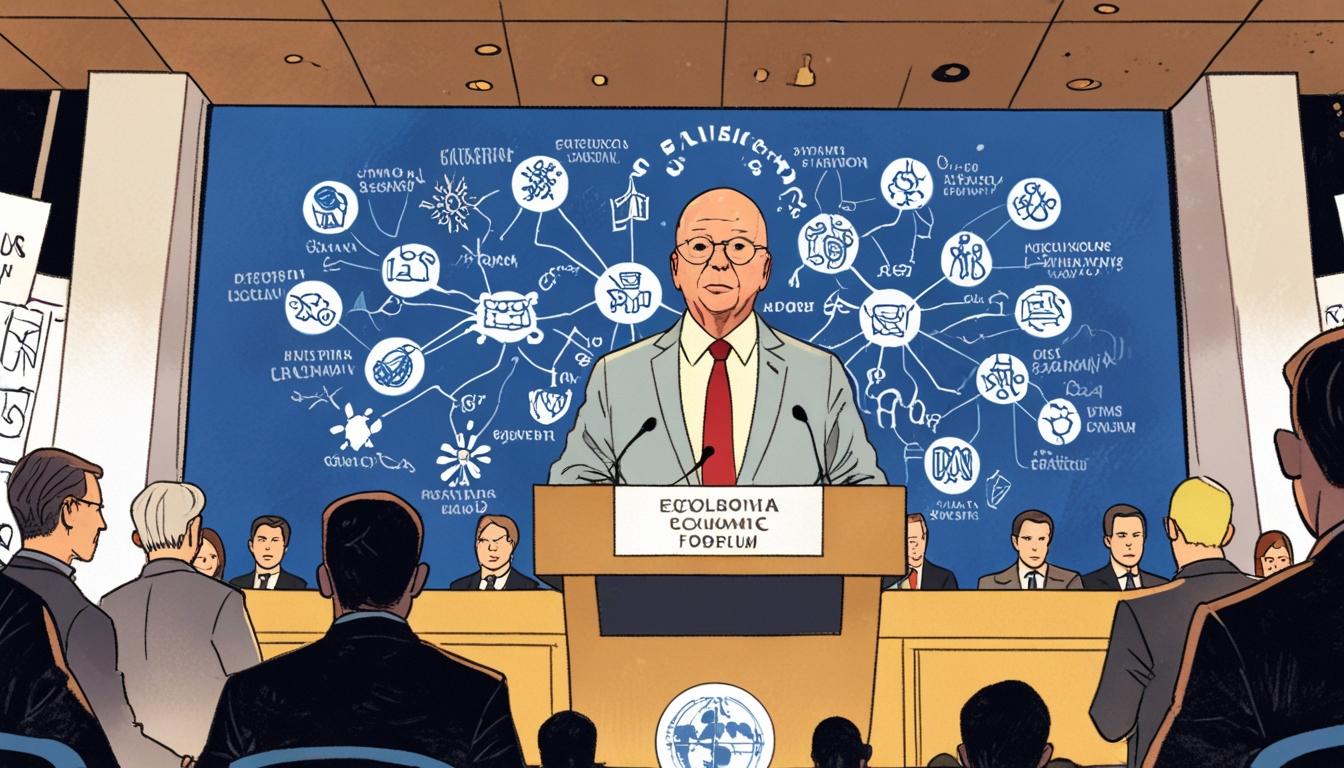Klaus Schwab, the founder and outgoing chair of the World Economic Forum (WEF), has faced a series of serious whistleblower allegations that accuse him of manipulating the organisation's research and misusing its resources. These claims, which contributed to Schwab's resignation as chair over the Easter weekend, are currently under investigation by the WEF.
The allegations were detailed in an anonymous letter sent to the WEF board of trustees last week. Among the accusations, Schwab is said to have influenced the methodology of the WEF's flagship “Global Competitiveness Report,” a key publication that evaluates countries based on productivity and resilience. This report often shapes discussions at the WEF’s annual Davos meeting, which gathers world leaders and business executives.
According to the whistleblower, Schwab altered the report’s methodology in response to pressure from governments displeased with their nations' rankings. However, Schwab has strongly denied these claims. In a statement circulated on Wednesday, he described the accusations as a "character assassination" and insisted he remained the “intellectual leader” of the Competitiveness Report, which he first developed in 1979. He said, "Some governments contacted me offering corrections to take updated data into account or to correct flaws in the analysis. I passed on this information to the teams. To construct this as manipulation is an insult to my academic standing."
The whistleblower letter also raised allegations regarding Schwab’s use of WEF funds and resources. It claimed that he and his wife, Hilde Schwab, made personal use of the organisation’s properties, had the WEF fund personal travel, and even asked junior staff to withdraw thousands of dollars from cash machines on his behalf. Schwab refuted these accusations as “pure lies” and stated that he had launched a defamation lawsuit against the anonymous accusers.
Further accusations targeted Schwab’s conduct within the organisation. The whistleblower letter maintained that Schwab asked WEF staff to promote him for a Nobel Peace Prize, a charge he rejected, clarifying in his statement, “Contrary to what is insinuated here, I have repeatedly asked people who wanted me not to do it.”
The complaints add to a backdrop of previous allegations made against Schwab, including claims of a toxic workplace culture within the WEF, where sexual harassment and discrimination against Black and female employees were reportedly not properly addressed. In March, an internal investigation reported to WEF sponsors found no legal violations by Schwab and did not substantiate misconduct claims against him.
Earlier this month, the Financial Times reported that Schwab intended to step down as chair of the WEF board of trustees by January 2027. However, the emergence of these new allegations accelerated such plans and culminated in his resignation during the Easter weekend.
The WEF has acknowledged the seriousness of the latest accusations but emphasised that the allegations remain unproven pending the ongoing investigation. In a statement on Tuesday, the forum said it would withhold detailed comment until the conclusion of the inquiry.
Schwab did not respond to a direct request for further comment. He criticised former colleagues for responding to the allegations without affording him a chance to defend himself, describing the situation as "calumnious" and “unfounded.”
The ongoing investigation and its outcomes are expected to have significant implications for the WEF and its leadership transition amid these controversial claims.
Source: Noah Wire Services
